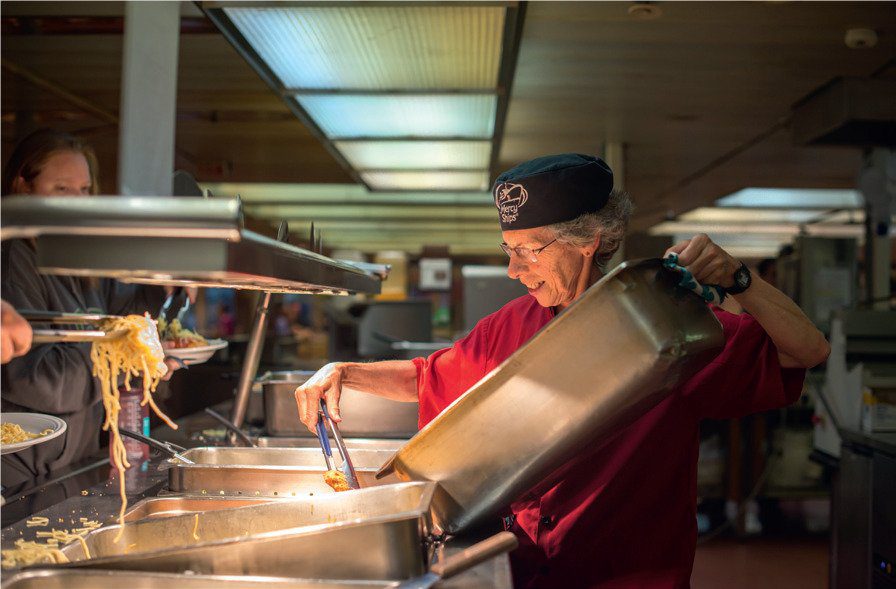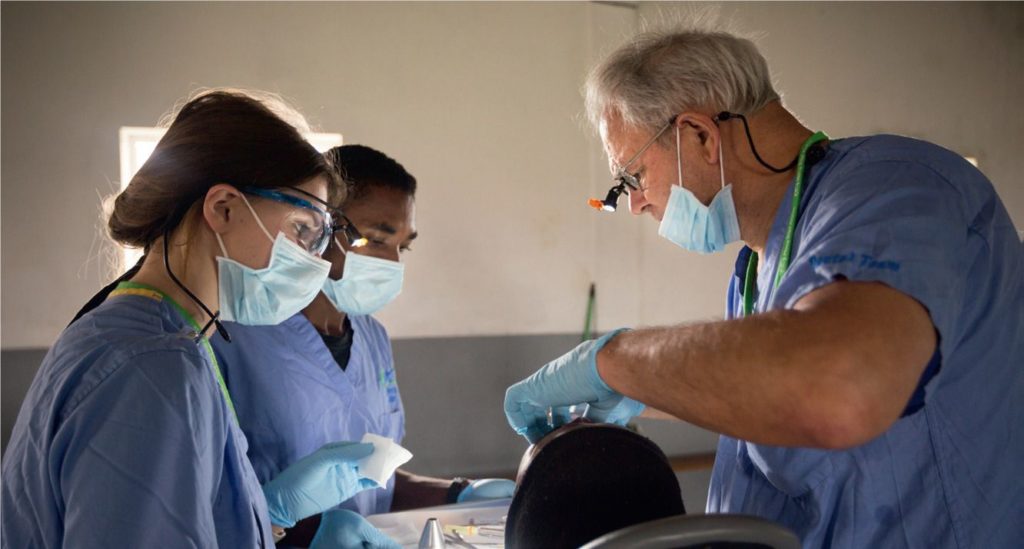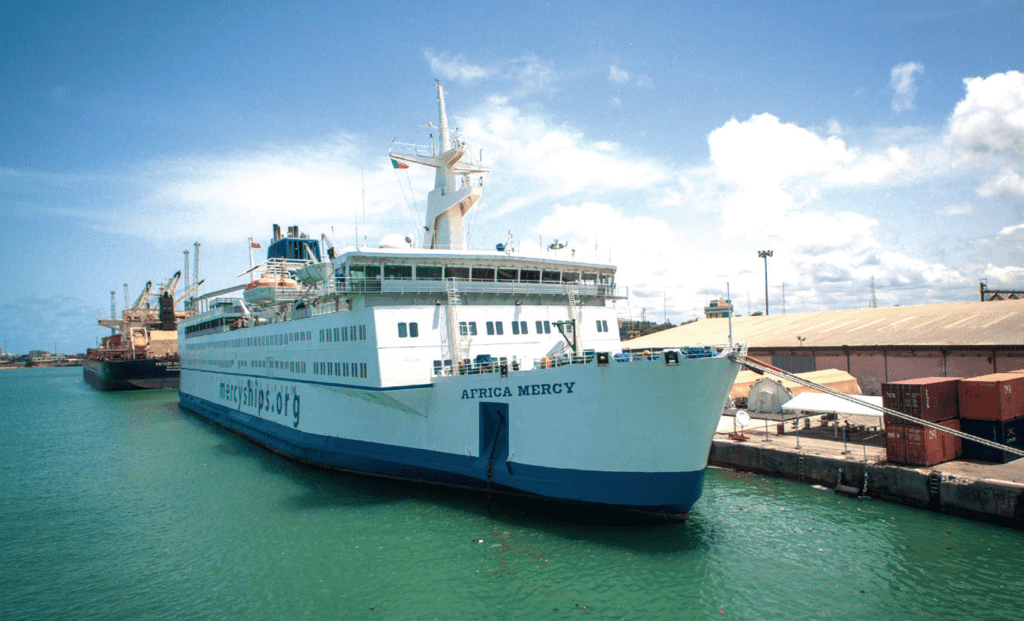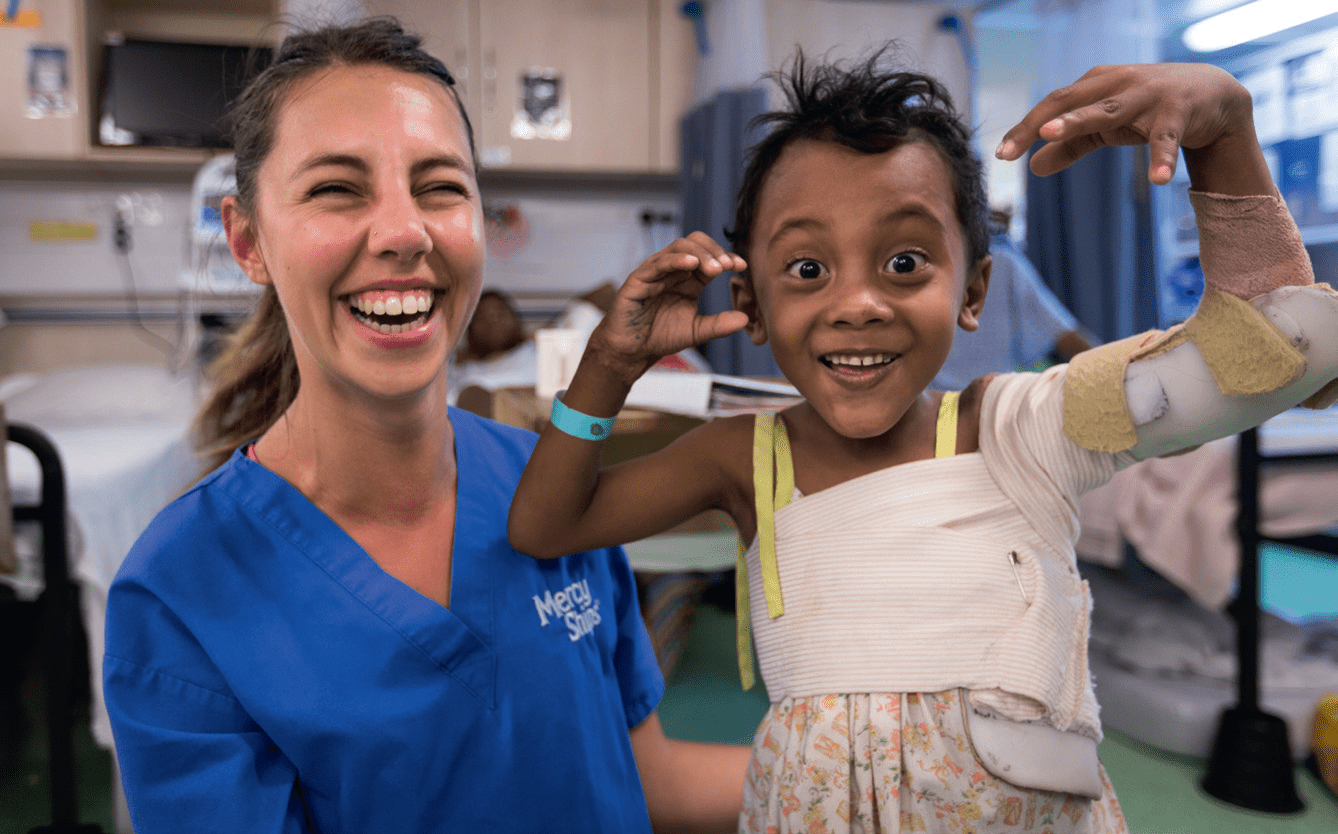Helping others should be a normal, everyday thing. It’s always a good time to help others, and it’s good to have others who can help you. MercyShips is one of those organizations that provide free healthcare via their hospital ships. It was founded in 1978 by Don and Deyon Stephens. MercyShips operates in over 70 countries. You don’t have to be a surgeon in order to help though. Donations go a long way in assisting others in pursuit of a better and healthier life. You never know, you might save someone’s life by participating in donating!
Want to learn more about this? Keep reading the article!
5 billion people do not have adequate access to essential surgical care. For 39 years, the humanitarian organization Mercy Ships has been helping to fill this gap by deploying hospital ships to the poorest countries. Onboard, 400 people of all ages from all over the world volunteer their time. Others help with financial support, for example through donations when preparing their estate and inheritance.
Mercy Ships is a great example of the work that people of all ages and cultures can do when they work together. Mercy Ships uses hospital ships to provide free, highly specialized surgical services, local capacity building through training and sustainable development to those without access in developing countries. Founded in 1978 in Lausanne by Don and Deyon Stephens, Mercy Ships has worked in more than 70 countries, providing more than $1 billion worth of services and assistance to more than 2.5 million direct beneficiaries. Each year, several hundred volunteers from more than 40 nations engage with Mercy Ships. Professionals such as surgeons, dentists, nurses, health care trainers, teachers, cooks, sailors, engineers, and farmers give their time and skills to make a difference in our world. Mercy Ships serves nations and aims to transform the lives of individuals.
Retirement to help those in need
Some people dream all their lives of giving their time to help those in need. But work commitments, family life, and daily routines can make this dream difficult to achieve. Retirement is sometimes the time to take action!
Dominique, 67, had long wanted to work with an NGO. “I was curious to know more about the reality of the investment of humanitarian organizations on the ground. It was at the beginning of her retirement that this physiotherapist from Vaud really took the time to think about a humanitarian commitment. “I was attracted by the concept of Mercy Ships: a ship that travels from country to country stays in port for 10 months and not only provides immediate surgical care for the poorest but also offers training and mentoring for local health professionals!
On board, Dominique volunteers as a team leader in the dining room. “I was responsible for the smooth running of the service in the dining hall during the three daily meals, and I managed the team.” Outside of work, she spends time with patients and builds beautiful relationships with many of them. She is moved by the health conditions she discovers. “You learn to put things into perspective, which leads to greater serenity.
Max, a retired dentist from Thurgau, sees another asset in his voluntary service. “Imagine what it’s like to work with 400 employees, all of whom are highly motivated. It creates an incredible dynamic and a sense of satisfaction that you rarely find. Now in his late 70s, Max treats people with a toothache in Africa for free. “We are privileged here, we are relatively well. I think it is our duty to help those who do not have this privilege. We can’t take away all the misery in this world, but we can help one person at a time. And as long as his strength allows, Max happily puts his skills and hands to work!
A donation can save lives
Doing good is a need – and it can be done at any time! Showing generosity while you are alive brings recognition. Providing for generosity after death gives a sense of satisfaction.
As sensitive as this subject is, however, a donor must respect certain rules. Donations must be made in accordance with the applicable law in and inheritance, and also adapted to the tax environment. This avoids unpleasant surprises on both sides.
Tax optimization of income from securities
It is possible to reduce one’s taxable income by making donations of a corresponding amount to a charitable institution during one’s lifetime. It is possible to deduct up to 20% of one’s net income for a charitable donation. Of course, legal entities enjoy the same privilege and can deduct up to 20% of their taxable profits from a charitable donation. Donations can be carefully planned and scrupulously phased over several years, thus ensuring long-term tax relief.
A bequest to do more good
A bequest automatically incurs inheritance tax for the recipient, which can amount to up to 36% of the amount, depending on the canton. On a national level, on average 1/3 of the bequest goes to the State for tax purposes.
If the bequest is intended for a tax-exempt Swiss charitable institution, the inheritance tax is waived. The entire donation can also be used for the desired charitable purpose. This means that more good can be done with the same bequest. The charitable purpose of the institution must exist in the donor’s canton of taxation, or at least be recognized (formal recognition/agreement). This will be verified by the competent authorities.
The complexity of inheritance law shows that donations, whether during life or after death, require careful planning. It is therefore advisable to seek specialist advice.









![CH12768_BANNER-MANCASSOLA-980x180-EN[1]](https://rang-group.ch/wp-content/uploads/2021/05/CH12768_BANNER-MANCASSOLA-980x180-FR1.png?v=4779)






